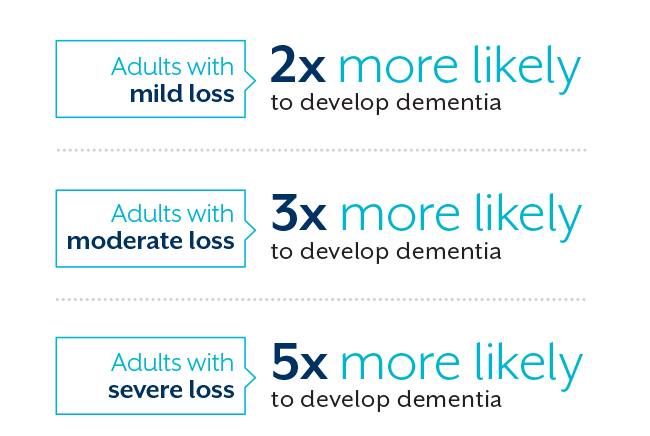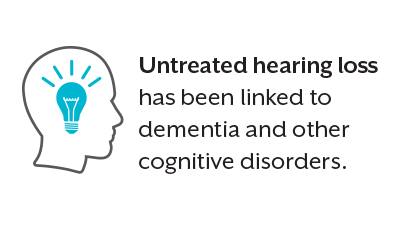Facts about Hearing
Signs and symptoms of hearing loss may include:
- Muffling of speech and other sounds
- Difficulty understanding words, especially against background noise or in a crowd of people
- Trouble hearing consonants
- Frequently asking others to speak more slowly, clearly and loudly
- Needing to turn up the volume of the television or radio
- Withdrawal from conversations
- Avoidance of some social settings
Want to experience a simulated hearing loss?
Click the video below! It will open your ears to experience what some people have to cope with everyday.
Types of Hearing Loss:
1. Conductive Loss
This hearing loss occurs when there is physical damage to the ear or a blockage of some sort such as ear wax or fluid in the middle ear or a hole in the ear drum. This type of loss can often be relieved by a surgical procedure.
2. Sensorineural Loss
This hearing loss occurs when there is non-repairable damage to the delicate hair cells in the inner ear or the auditory nerve connection with the brain is disrupted. Common causes are
- excessive noise, e.g. MP3 players, loud concerts, construction and/or power tools
- the natural ageing process.
This type of solution has few to no surgical procedures. Most commonly treated with the use of hearing aids.

It can happen to ANYONE - regardless of age
We live in a ever-louder world that increasingly harms our hearing. Causes include infections, injuries, diseases, drugs or birth impairments. In addition, hearing slowly deteriorates with increasing age. More than ONE MILLION adults across the country reported having a hearing-related issue, 50% more than sight related issues. (StatsCan, 2002)
How Do We Get A Hearing Loss?
Advanced age is the most common cause of hearing loss. One out of three people aged 65-74 has some level of hearing loss. After age 75, that ratio goes up to one out of every two people.
Researchers don't fully understand why hearing decreases with age. It could be that lifetime exposure to noise and other damaging factors slowly wear down the ears' delicate mechanics. Genes also play a role.
Noise wears down hearing if it's loud or continuous. In some workplaces, ears are exposed to dangerous noise levels every day. To understand the impact of noise, consider this: 44% of carpenters and 48% of plumbers report some hearing loss. Other noisy lines of work include the military, mining, manufacturing, agriculture, and transportation.
Even musicians, who literally create music for our ears, are at risk for noise-induced hearing loss. Some now wear special earplugs to protect their ears when they perform. The earplugs allow them to hear music without harming their ears' inner workings.
Certain medications can impair hearing and/or balance. More than 200 medications and chemicals have a track record of triggering hearing and/or balance side effects in addition to their disease-fighting capabilities. These include some antibiotics and chemotherapy drugs,aspirin, loop diuretics, a drug used to treat malaria, and several drugs for erectile dysfunction.




We provide the best experience to show you what hearing better can feel like! Call Now


